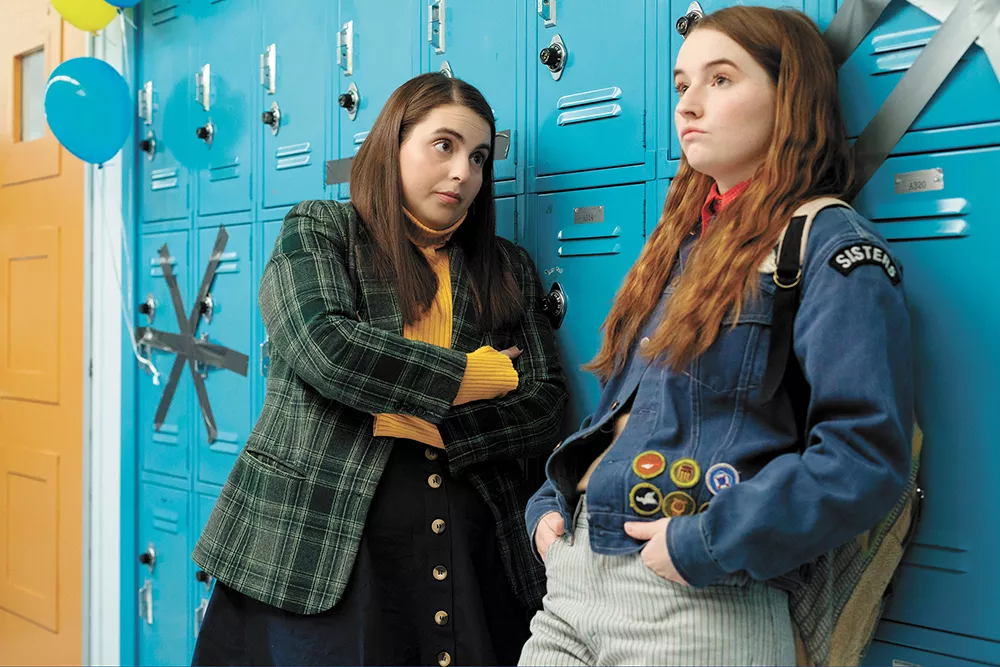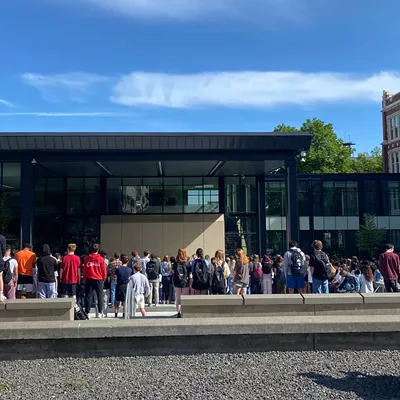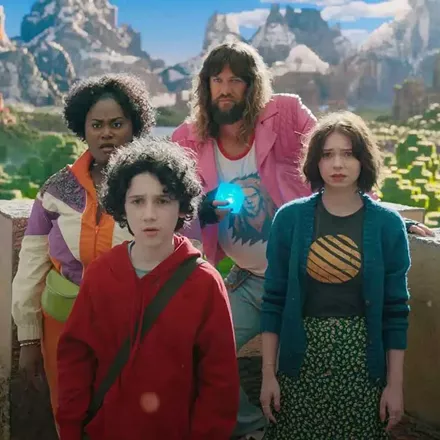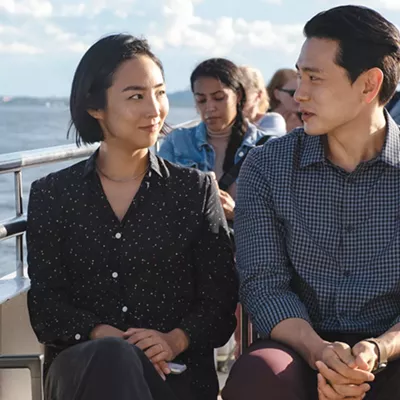I'm going to describe the basic details of Booksmart, and it'll sound like a hundred other movies you've seen before. But I promise you — it isn't.
It's about two high school girls who, as the end of senior year approaches and the great unknown of adulthood looms, suddenly realize they haven't behaved badly enough, and that all their classmates think they're buzzkills. And they are, to an extent. So they spend the evening before graduation trying to track down the craziest party in town, intending to go out in a final blaze of booze-fueled glory.
Easier said than done.
Yes, this is a one-crazy-night movie, a last-day-of-school movie, a good-kids-gone-bad movie. But like Fast Times at Ridgemont High and Clueless and Mean Girls before it, it's wickedly funny and intelligent in spite of its conventions. It's also carrying the torch of all those raunchy '80s comedies that used to run in the early morning on Comedy Central, and yet it's scrubbed free of the cynicism and troubling sexual politics that define many of its forebears.
It also helps that its two protagonists feel like real, relatable 17-year-olds. Molly (Beanie Feldstein from Lady Bird) is the overachieving, Yale-bound class president who's still trying to get policies enacted on the last day of school, when even the principal (Jason Sudeikis) has checked out. Amy (Kaitlyn Dever), her best friend, is more reserved but no less conscientious, planning to spend her summer vacation in Botswana doing charity work.
They've spent every waking moment together since they were much younger, confiding their deepest secrets to each other — like how Molly is nursing a crush on her meatheaded VP (Mason Gooding, son of Cuba). Or how Amy is ga-ga for the tomboy (Victoria Ruesga) who always seems to be skateboarding through the school courtyard in slo-mo. They're both too sheepish to make a move, but then Molly has a disturbing revelation: All the class losers are also going to Ivy League colleges despite having coasted through high school. Even the burnout who failed seventh grade twice has secured a six-figure coding job at Google. This big party is their salvation, then, and both of their crushes will be there.
Much of the comedy in Booksmart is borne out of Amy's and Molly's complete incompetence when it comes to breaking the rules. They have fake college IDs, sure, but they're for sneaking into the university's all-night library. When they hold a pizza guy at (fake) gunpoint, he lectures them about how reckless they're being by getting into a car with a strange man. And they can't even order a getaway Lyft without the driver being a grown-up they know.
This premise is most immediately reminiscent (perhaps not coincidentally) of Superbad, which starred Feldstein's brother Jonah Hill. It also contains fantasy sequences and moments of heightened reality that recall the cult classic Romy and Michele's High School Reunion, whose star, Lisa Kudrow, pops up here as Amy's mom.
But what separates Booksmart from so many other, similar films is its terrific ensemble cast, many of whom are unknowns. Each of the supporting characters feels like a specific comic creation, from the try-hard rich kid (Skyler Gisondo) who nobody likes, to the hip teacher (Jessica Williams) who might be a little too close to her students, to the overeager theater kids (Noah Galvin and Austin Crute) whose murder-mystery party is way too Method, to the class eccentric (Billie Lourd) who seems to exist on another plane of reality entirely.
Booksmart is the feature directorial debut of actress Olivia Wilde, and her background helming music videos comes through. We get some surprisingly evocative visual moments (credit to cinematographer Jason McCormick), including a heartbreaking realization that happens wordlessly beneath the surface of a swimming pool, a potentially friendship-ending argument that unfolds in a single take and a bizarre drug-trip sequence employing stop-motion animation.
But for all that style and flash, not to mention its semi-ironic soundtrack of hip-hop bangers, what Booksmart gets absolutely right is that adolescence is little more than a series of small humiliations. It might exist in the fantasy land of teen moviedom, but the characters — their relationships, their desires, their disappointments — feel totally authentic, and the film seems to genuinely love them. And that's what matters. ♦
























